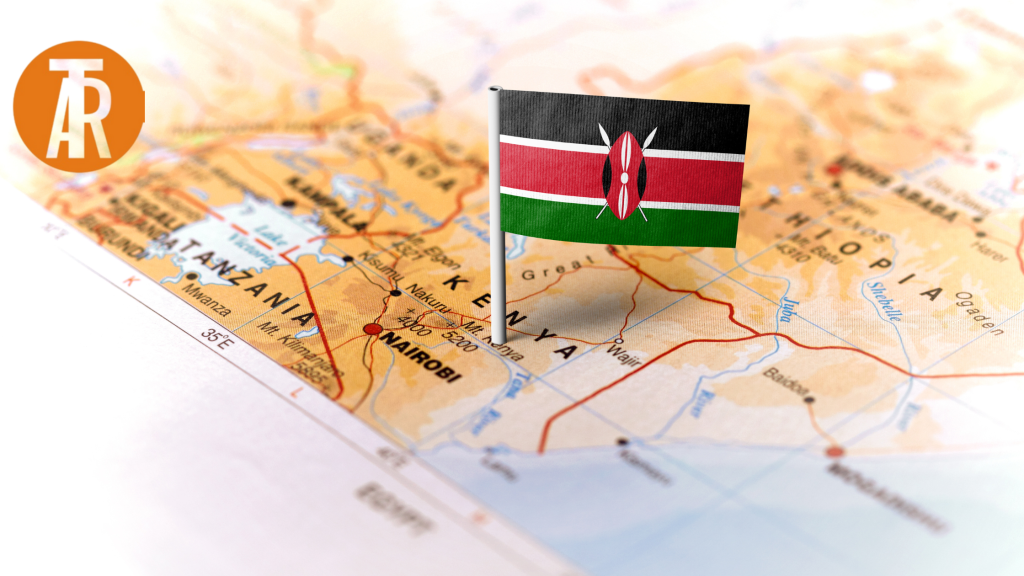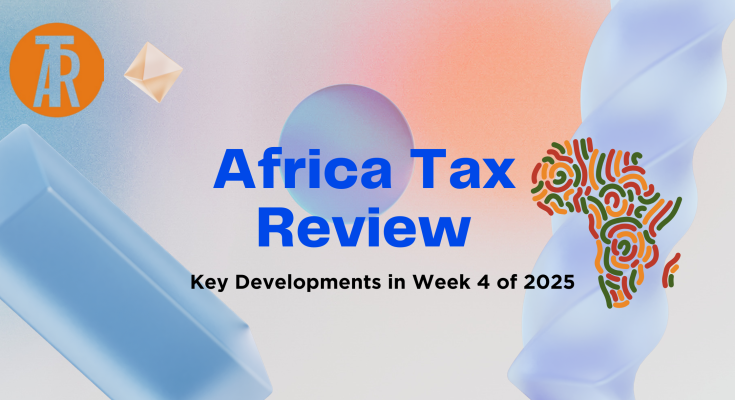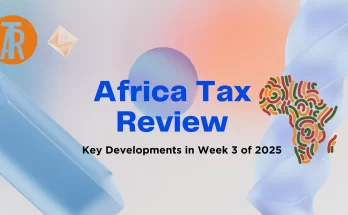Table of Contents
In the fourth week of January 2025, tax-related discourse in Africa intensified as governments grappled with revenue pressures, inflation control, and political accountability.
Countries such as Nigeria, South Africa, Ghana, and Kenya unveiled new tax measures or responded to public backlash against proposed policies.
These developments reflect ongoing efforts to balance fiscal sustainability with social equity, while navigating the complex realities of tax reform in emerging economies.
Africa Tax Review: Key Developments in Week 4 of 2025

1. Nigeria: VAT Adjustment Aimed at Inflation Control
Nigeria’s federal government introduced a bold tax reform agenda during the week, with a central feature being the proposal to increase the Value Added Tax (VAT) rate from 7.5% to 12.5% by 2026.
According to Nigeria’s Tax Policy Office, this reform is part of a strategy to bring down the inflation rate from 34.8% in December 2024 to 15% by the end of 2026, while simultaneously shielding poor households by maintaining zero-rated VAT treatment on essential goods such as food and medicine, which account for 82% of household spending.
As reported by Reuters on January 31, 2025, the government believes this policy will reduce inflationary pressures while increasing fiscal space.
However, the proposal has triggered regional debate due to a complementary suggestion to allocate 60% of VAT revenues to states that generate the most revenue, sparking resistance from northern governors concerned about regional disparities.
The federal government has acknowledged these concerns and signaled willingness to revisit the VAT revenue-sharing formula to ensure national cohesion.

2. South Africa: Tensions Over Proposed VAT Increase
South Africa’s National Treasury came under fire during the same week over a proposal to incrementally raise VAT by one percentage point over two years.
The plan, part of a broader fiscal adjustment framework, has been rejected by the Democratic Alliance (DA), a key member of the ruling coalition. The DA argues that such an increase would disproportionately impact the country’s poor and vulnerable populations.
President Cyril Ramaphosa, in response to mounting opposition, has ordered a 30-day review period for the Treasury to evaluate alternative revenue-generation strategies.
The policy standoff, reported by Reuters on April 6, 2025, has further strained relations within the governing alliance. The DA has filed a legal challenge questioning the constitutional validity of the budget process and seeking a judicial injunction against the VAT increase.

3. Ghana: E-Levy Repeal Marks Fulfillment of Campaign Promise
Ghana’s fiscal narrative shifted positively during the week with the announcement that the controversial Electronic Transfer Levy (E-Levy) would be repealed.
The Finance Minister, Cassiel Ato Forson, made this known during the budget presentation, affirming that the government would eliminate the E-Levy, COVID-19 levy, and betting tax in accordance with President John Mahama’s campaign commitments.
The move was formalized on April 2, 2025, when the President assented to the repeal bill. As documented on Wikipedia’s page on Ghana’s E-Levy, the levy had been a source of public discontent since its inception, with many viewing it as a barrier to financial inclusion and digital innovation. Its repeal has been welcomed by consumer groups and fintech stakeholders alike.

4. Kenya: Mass Protests Erupt Over Finance Bill Provisions
In Kenya, widespread protests erupted following the publication of the 2024 Finance Bill, which includes proposals to expand the tax base and generate environmental levies.
The most contested provision is the introduction of an “Eco Levy” on environmentally harmful imports, alongside a plan to impose 16% VAT on previously exempt essential items.
As reported on Wikipedia’s entry on the Kenya Finance Bill Protests, the demonstrations were largely driven by youth groups, civil society organizations, and human rights advocates, who argue that the reforms will drastically raise the cost of living.
The protests highlight the growing tax fatigue and mistrust of fiscal policy among Kenya’s urban middle class and vulnerable communities.
Conclusion: Tax Reform Crossroads in Africa
Week 4 of January 2025 underscored the tension between urgent revenue needs and the social sensitivity of taxation.
While Nigeria and South Africa seek to raise VAT to finance public services and stabilize macroeconomic conditions, Ghana and Kenya demonstrate that tax acceptance is deeply tied to public trust and political legitimacy.
These developments point to a crucial lesson for tax administrators and policymakers: tax reforms must be technically sound, equitably designed, and transparently communicated.
As always, Africa Tax Review remains committed to delivering timely, evidence-based updates that empower professionals across the continent. Visit www.africataxreview.com weekly for your authoritative digest on what’s changing in tax policy across Africa.
Olatunji Abdulrazaq CNA,ACTI, ACIArb(UK)
Founder/CEO,Taxmobile.Online


